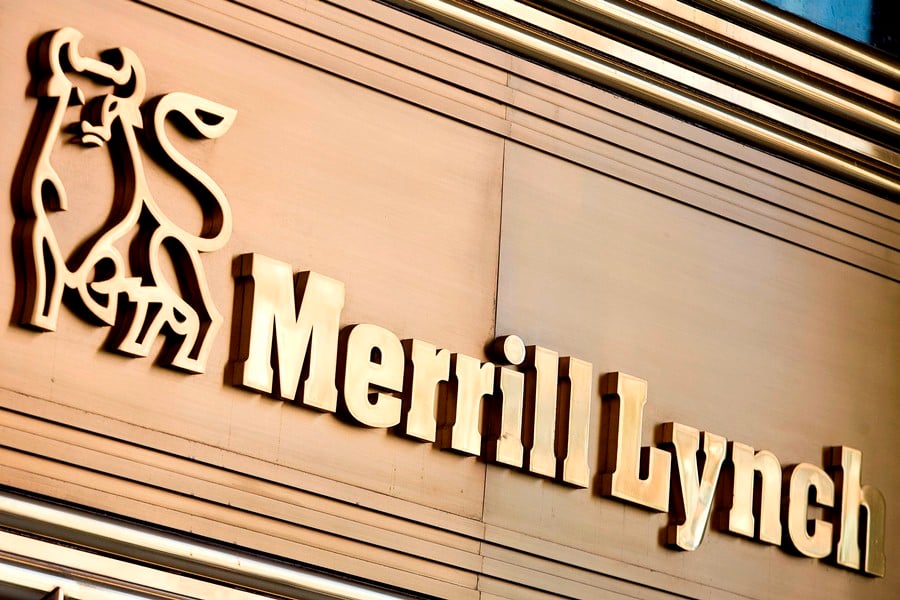

For years, Merrill Lynch failed to report suspicious transactions as required under federal bank regulations, and in particular the giant brokerage failed to apply the correct threshold to report suspicious activities for more than 10 years, according to statements Tuesday afternoon by the Securities and Exchange Commission and the Financial Industry Regulatory Authority Inc., which each penalized Merrill Lynch $6 million in settling the matter.
"Following an internal review, we reported this matter to regulators and have enhanced our process and training regarding these filings," a spokesperson for Bank of America, which owns Merrill Lynch, wrote in an email.
Merrill Lynch and Bank of America settled the charges with the SEC. In the settlement with Finra, Merrill Lynch agreed to Finra's findings without admitting or denying the regulator's charges.
The commission alleged that the firm used a $25,000 threshold instead of the required $5,000 threshold "for reporting suspicious transactions or attempted transactions where a suspect may have been seeking to use Merrill Lynch to facilitate criminal activity and could not be identified," according to the SEC statement.
According to Finra, that resulted in Merrill Lynch's failing to file nearly 1,500 suspicious activity reports. A financial institution has 30 days to file a suspicious activity report after the date of the initial detection of facts that may constitute a basis for filing such a report, according to the Treasury Department.
Just last month, Finra sued former Merrill Lynch broker James Iannazzo, who was fired in 2022 after his tirade at a smoothie shop in Connecticut went viral, alleging that, while employed at Merrill, he made a series of cash deposits and withdrawals to evade triggering federal rules linked to anti-money laundering requirements, according to a complaint by Finra’s enforcement department.
Also Tuesday, Merrill Lynch’s parent company, Bank of America, reached a $250 million settlement with the Consumer Financial Protection Bureau, which accused the bank of “consumer abuses,” including opening accounts without permission, charging unfair overdraft fees and failing to honor credit card benefits.

While industry statistics pointing to a succession crisis can cause alarm, advisor-owners should be free to consider a middle path between staying solo and catching the surging wave of M&A.

New joint research by T. Rowe Price, MIT, and Stanford University finds more diverse asset allocations among older participants.

With its asset pipeline bursting past $13 billion, Farther is looking to build more momentum with three new managing directors.

A Department of Labor proposal to scrap a regulatory provision under ERISA could create uncertainty for fiduciaries, the trade association argues.

"We continue to feel confident about our ability to capture 90%," LPL CEO Rich Steinmeier told analysts during the firm's 2nd quarter earnings call.
Orion's Tom Wilson on delivering coordinated, high-touch service in a world where returns alone no longer set you apart.
Barely a decade old, registered index-linked annuities have quickly surged in popularity, thanks to their unique blend of protection and growth potential—an appealing option for investors looking to chart a steadier course through today's choppy market waters, says Myles Lambert, Brighthouse Financial.
